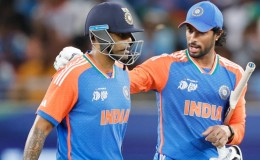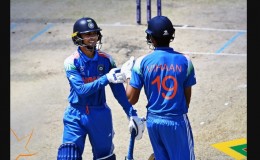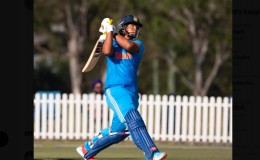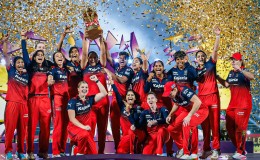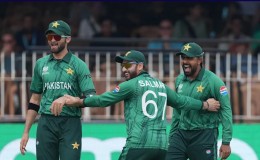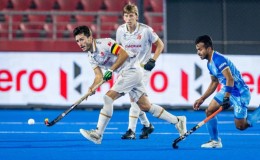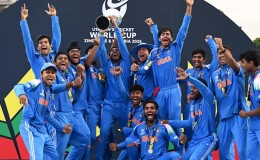New Delhi: Outrageously, unbelievably, breathtakingly and awesomely good! That’s how one can describe Viswanathan Anand’s fifth World Chess Championship title that he won by defeating Israeli challenger Boris Gelfand on Wednesday.
It is sports-lovers dream come true moment to watch history being made in front them and the Indians have been seeing that since Anand first won the World Chess Championship title in 2000 beating Latvian Alexei Shirov in Tehran in 2000. He then followed it up with wins in 2007 (Mexico), Bonn (2008), Sofia (2010) and now Moscow (2012).
The win adds lustre to his six chess Oscars. Anand has won the Chess Oscar "an award given by polling votes from the global chess fraternity, including players and best writers across the world", a record five times with the wins coming in 1997, 1998, 2003, 2004, 2007 and 2008.
Destined to be greater than the greatest he came, he saw and he conquered. His achievements in the game of sixty four squares just show a relentless drive by a remarkable man with loads of commitment, courage, personal pride and strength of mind.
This boy from Chennai captured the imagination of sporting public when at the age of 14; he stunned the field with a nine out of nine perfect score while winning the National Sub-Junior Chess Championship in 1983. A year later he became the youngest Indian to win the International Master's Title at the age of fifteen in 1984 and by 16, he was the National Champion. He won it twice more and then concentrated on becoming a champion at higher international levels.
Introduced into the game by his mother Susila Viswanathan, the journey of this boy to a man was often defined by courage and resilience. He learnt the nuances in the company of his mother while following the game on chess in Manila, Philippines, where his father, R. Viswanathan, a senior railway officer, was posted for some years in the early 1980s.
Playing his moves at great speed, he earned the nickname of 'Lightning Kid' and also 'Tiger from Madras' and in 1987, he returned to Manila, to win and become the first Indian to win the World Junior Chess Championship.
In 1988, at 18, he earned three Grandmaster norms within a span of less than 12 months and in December, he became India's first Grandmaster. Then followed Anand's spectacular rise in world chess.
His first big moment came at the Reggio Emilia tournament in 1991 where he finished ahead of Garry Kasparov and Anatoly Karpov and signalled his arrival on the world stage. In 1991, Anand lost in a tie-breaker to Anatoly Karpov in the quarter finals of the FIDE Knockout World Chess Championship.
As the world of chess split, Anand also played in the Kasparov-promoted Professional Chess Association and reached the final, where he lost to Kasparov in New York City's World Trade Center. After eight draws, which was a record for the opening of a world championship match, Anand broke through with a win in the ninth game. But then the more experienced Kasparov hit back and won four of the next five game and went on to win the match 10.5-7.5.
In 2000, with Kasparov and Kramnik staying away, Anand's win at the FIDE World Championships in New Delhi and Tehran did not impress the chess fraternity, which still considered the classical Match-play as the real world title.
But on the tournament circuit, Anand continued his domination in various forms, winning Advanced Chess tournaments in Leon, Spain, the Chess Classic of Mainz, where he won the title 11 times.
His five successes at Wijk Aan Zee have been a record and he has also won in Dortmund and Linares.
In 2007, he won the Linares-Morelia with the world's top players in attendance, though Kasparov had retired by then. The tournament was played to crown the undisputed world champion and Anand was finally the one. Then with critics still claiming Anand had not won a title in Matchplay, he came up against Kramnik, who had dethroned Kasparov.
Over the past fortnight, Anand had to fight it hard against Gelfand to retain the title for the third time. Anand was stretched to the tie-breakers after the 12-round game ended in a draw with both the players locked at 6-6.
In the four-match tie-breaker, Anand decimated Gelfand 2.5-1.5. Anand went ahead after winning the second game in 77 moves following a draw in the first in 33 moves. The remaining two games also ended in a draw.
Anand is the only player to have won the world title in three formats.
In October 2003, FIDE, organised a rapid time control tournament in Cap d'Agde and called it as the World Rapid Chess Championship. Each player had 25 minutes at the start of the game, with an additional 10 seconds after each move. Anand won this event ahead of ten of the other top 12 players in the world with Gary Kasparov being the only missing player.
Apart from five Oscars, his other awards include the Arjuna award for Outstanding Indian Sportsman in Chess in 1985; the Padma Shri, National Citizens Award and Soviet Land Nehru Award in 1987; the inaugural Rajiv Gandhi Khel Ratna Award, India's highest sporting honour in the year 1991-1992. He has also been nominated by All India Chess Federation (AICF) for the Bharat Ratna, the highest civilian award.
Players like him come once in many generations and his instinctive ability to grasp, adjust and deliver is what makes him such an outstanding sportsperson. Cool and restrained, Anand is unique amalgam of flair and character; passion and steel. He has the grace, style and confidence and it’s his resolve to fight back that makes him outstanding.
Already in the pantheon of all-time greats, Anand would have set landmarks which would stand the test of time for over many years. Not many inspire as much awe as this 42-year-old Chennai guy who has dominated the world chess for over a decade and a half.
By IANS/ISN

